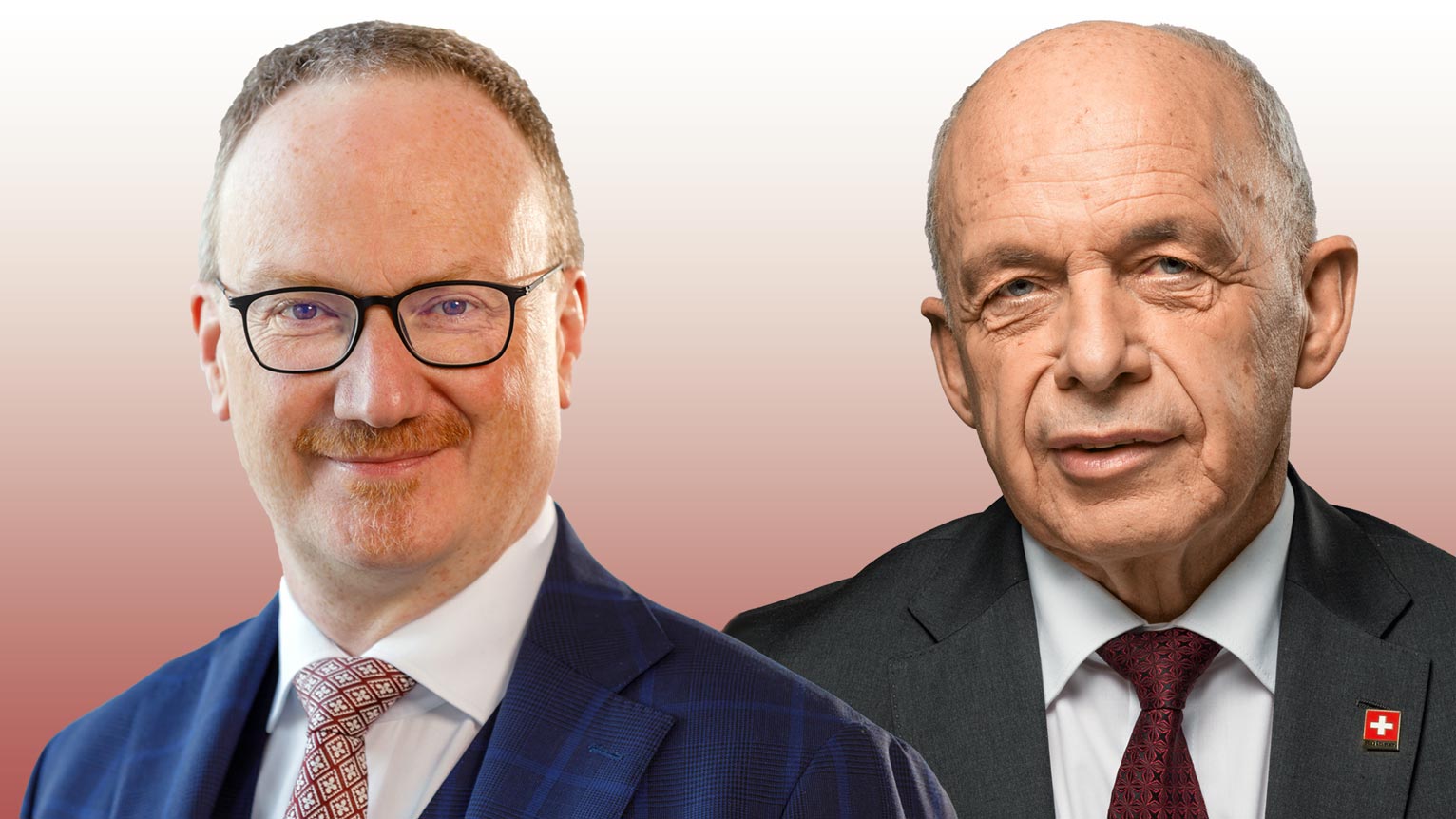In the media
The Center’s affiliated researchers actively participate in public discussions on current issues and provide expert advice to government organizations and decision makers.
When coronavirus cripples China
What does it mean for the global flow of goods if China is shut down by coronavirus? David Dorn commented on the consequence of the closure of certain regions in China for the production capacities of companies there and for transport chains.
Ukrainian women send money to the homeland
The total amount of money flowing from refugees to Ukraine has not yet been researched. But Dina Pomeranz emphasized that the socalled remittances have a great effect. These remittances are definitely worthwhile, as known from research. They have a very positive effect on the countries of origin. They are often invested in education, business or health. Worldwide, migrants make a huge contribution to global development. The total repayments are three times higher than global development aid added together.
Taxing the superrich
Many think billionaires are spared too much by the taxman compared to average earners. Florian Scheuer took a closer look at where this impression comes from. He also commented on the inequality of income and wealth in Switzerland, the 99 percent initiative of the Juso, and special features of the Swiss tax system.
Understanding who commits which crimes
Why do some young men turn to crime, while others don’t? Ernst Fehr and co-authors showed that preferences such as risk tolerance, impatience, and altruism as well as self-control can predict who will commit crime. Risk-tolerant, impatient young men are more likely to commit property crime, while people with low self-control tend to commit violent, drug and sexual offenses.
The Center’s affiliated researchers actively participate in public discussions on current issues and provide expert advice to government organizations and decision makers.
When coronavirus cripples China
What does it mean for the global flow of goods if China is shut down by coronavirus? David Dorn commented on the consequence of the closure of certain regions in China for the production capacities of companies there and for transport chains.

Events 2022
The Center’s events come in different formats, including two annual conferences with leading representatives from the academic, private, and public sectors debating a key contemporary economic issue. The Opinion events feature top representatives from academia to voice their views in public speeches.
Switzerland – endangered success model (Wirtschaftspodium Schweiz)
The anniversary edition of the business panel was packed with intensive debates on the topics of framework agreement, trade, neutrality, security, and world order. Conclusions were drawn about Switzerland as a success model, summed up by keynote speaker Federal Councillor Guy Parmelin, identifying several dangers which surround the country. Such danger currently emanates from the Russian regime, having declared war on Ukraine. The difficult and unstable coexistence of imperialism and democracy was the topic of Gérard Roland’s keynote. He predicted a grim future for today’s empires: “The Russian and Chinese empires will likely be doomed by backlash from their expansionism.”
Watch replay
Green innovation policies (Economics of global challenges)
How much worse will the negative impact of climate change become? This will obviously depend on our ability to reduce greenhouse gas emissions. UBS Foundation Professor David Hémous argued that achieving the necessary reduction in emissions, while maintaining (and improving) worldwide living standards, can only be achieved through innovation. Innovation has the potential to combine the necessary decline in greenhouse gas emissions with sustained economic growth; and it responds largely and rapidly to price signals.
Watch replay
Revealing stereotypes (Economics of global challenges)
Michela Carlana (Harvard Kennedy School) explained why implicit stereotypes – while not necessarily bad – can cause problems when they induce discrimination and self-fulfilling prophecies. Her research focuses on the role of teacher’s stereotypes toward immigrant school children. She found that revealing own stereotypes to teachers affects their grading behavior. A result that has strong policy implications since implicit discrimination has profound consequences for the accumulation of human capital of immigrant children.
Watch replay
Good economics for hard times (Opinions)
Nobel laureates Esther Duflo and Abhijit Banerjee presented key lessons from their latest book Good Economics for Hard Times, providing a new perspective of policy debates that are shaping the discourse on today’s most pressing global problems, such as increasing inequality or climate change. They like to compare their applied approach to the work of plumbers. By this they mean that it is the job of economists to identify the hidden details in complex problems and thereby provide policymakers with a better basis for decision-making. In this way, hopefully, the worldwide declining confidence in economists as well as in governments can be rebuilt step by step.
Watch replay
Spin dictators (Opinions)
When we think of dictators, we think of power-hungry rulers in uniforms, ruling by means of fear, exercising brutal repression and open censorship. But the face of tyranny has changed, explained Russian economist Sergei Guriev (Sciences Po) in his lecture at the University of Zurich. In contrast to the traditional “fear dictators,” the power of today’s much more common “spin dictators” is based on spreading a perfect image of competent leadership, wearing grey suits, and implementing repression and censorship with subtle instruments. Thereby, they are better suited to secure their rule in the face of modernization, globalization, and connectivity.
Watch replay
European energy policy at war (Economics of global challenges)
Natural gas and electricity prices in Europe have risen 10 times in the last few months, for which there are different reasons, as Steve Cicala (Tufts University) explained. Besides the cuts from Russia and the reduced power production in France, there is one reason in particular: “The main problem is gas scarcity. Ultimately, the high prices are a symptom of this scarcity.” To solve the shortage problem, the idea is not to buy gas elsewhere, but to reduce gas use in general.
Watch replay
Superstar firms – a threat to competition and democracy? (Forum for Economic Dialogue)
At our anniversary edition of the Forum for Economic Dialogue we focused on questions around superstar firms and their impact on society. The speakers examined the topic from several perspectives, with the regulatory aspect in the foreground. After all, the majority of speakers agreed, dominant firms bring more harm than good. The market power of superstar firms has far-reaching negative consequences, such as a declining market dynamism, fewer start-ups, lower wages. Panelists also shared concerns about superstar firms’ influence on the political discourse. Accordingly, the role of the state and antitrust law was discussed in detail with a focus on the new EU legislative proposals Digital Services Act (DSA) and Digital Markets Act (DMA), which go beyond antitrust law.
Watch replay
The Center’s events come in different formats, including two annual conferences with leading representatives from the academic, private, and public sectors debating a key contemporary economic issue. The Opinion events feature top representatives from academia to voice their views in public speeches.
Switzerland – endangered success model (Wirtschaftspodium Schweiz)
The anniversary edition of the business panel was packed with intensive debates on the topics of framework agreement, trade, neutrality, security, and world order. Conclusions were drawn about Switzerland as a success model, summed up by keynote speaker Federal Councillor Guy Parmelin, identifying several dangers which surround the country. Such danger currently emanates from the Russian regime, having declared war on Ukraine. The difficult and unstable coexistence of imperialism and democracy was the topic of Gérard Roland’s keynote. He predicted a grim future for today’s empires: “The Russian and Chinese empires will likely be doomed by backlash from their expansionism.”
Watch replay
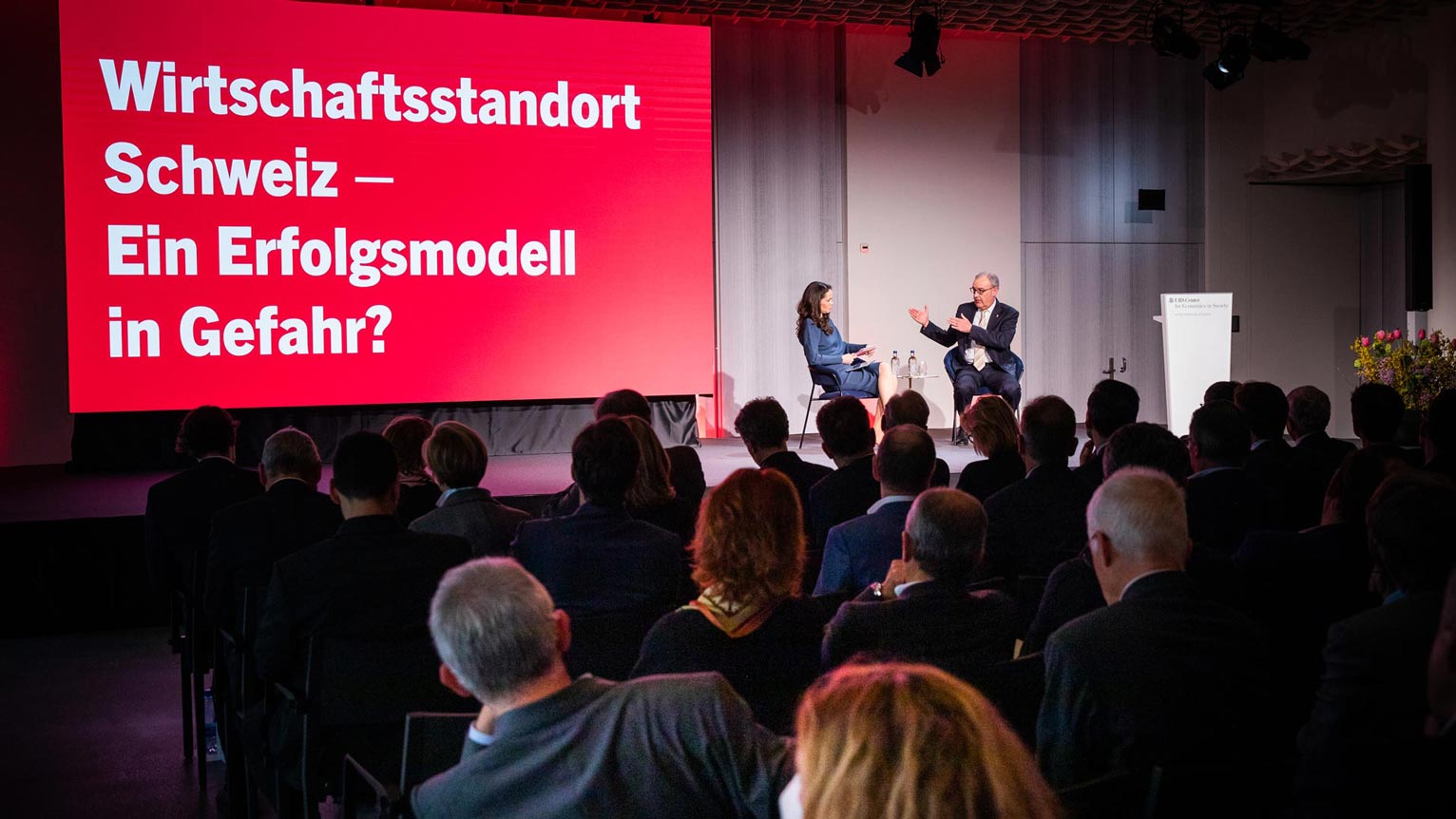
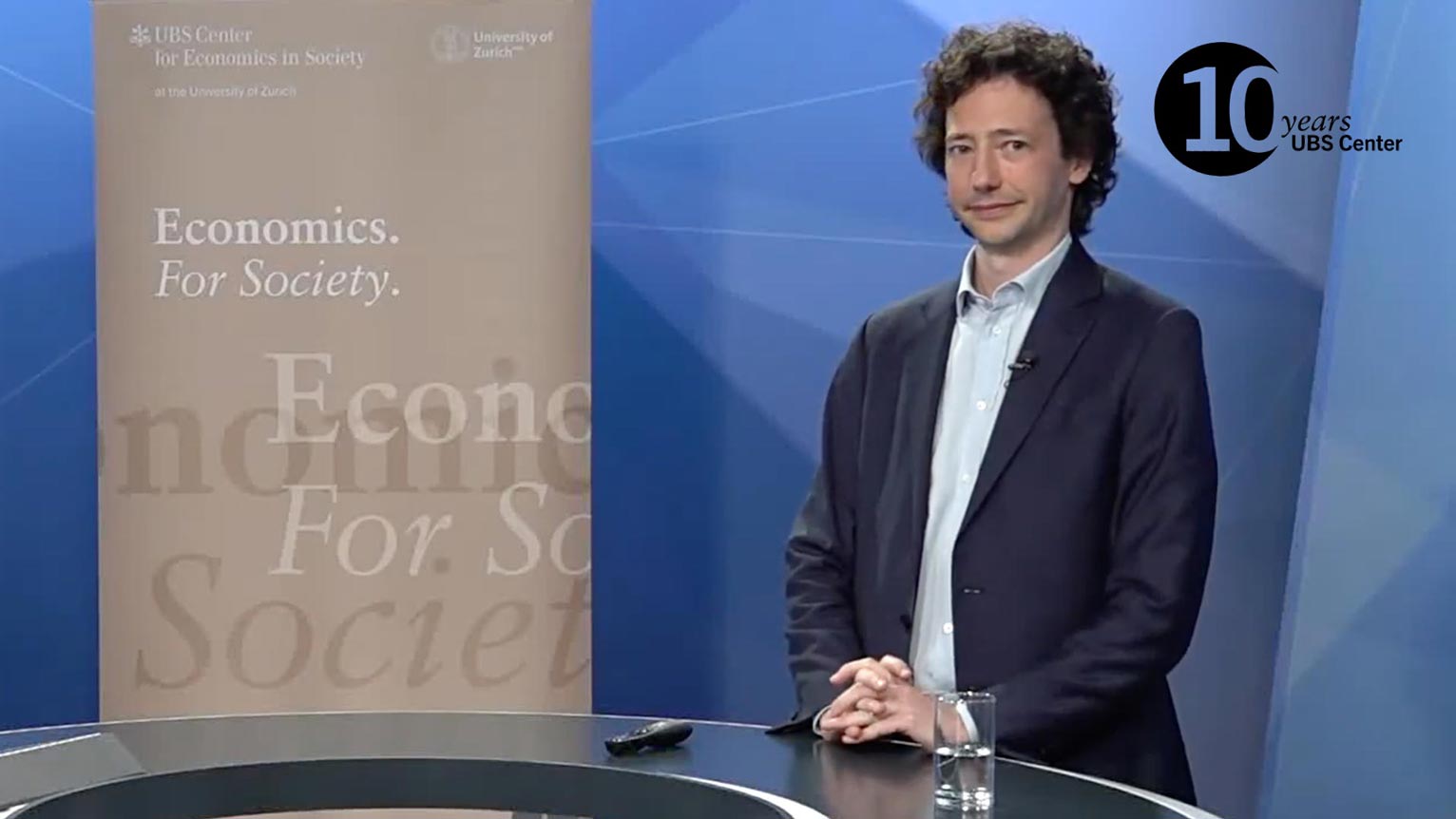
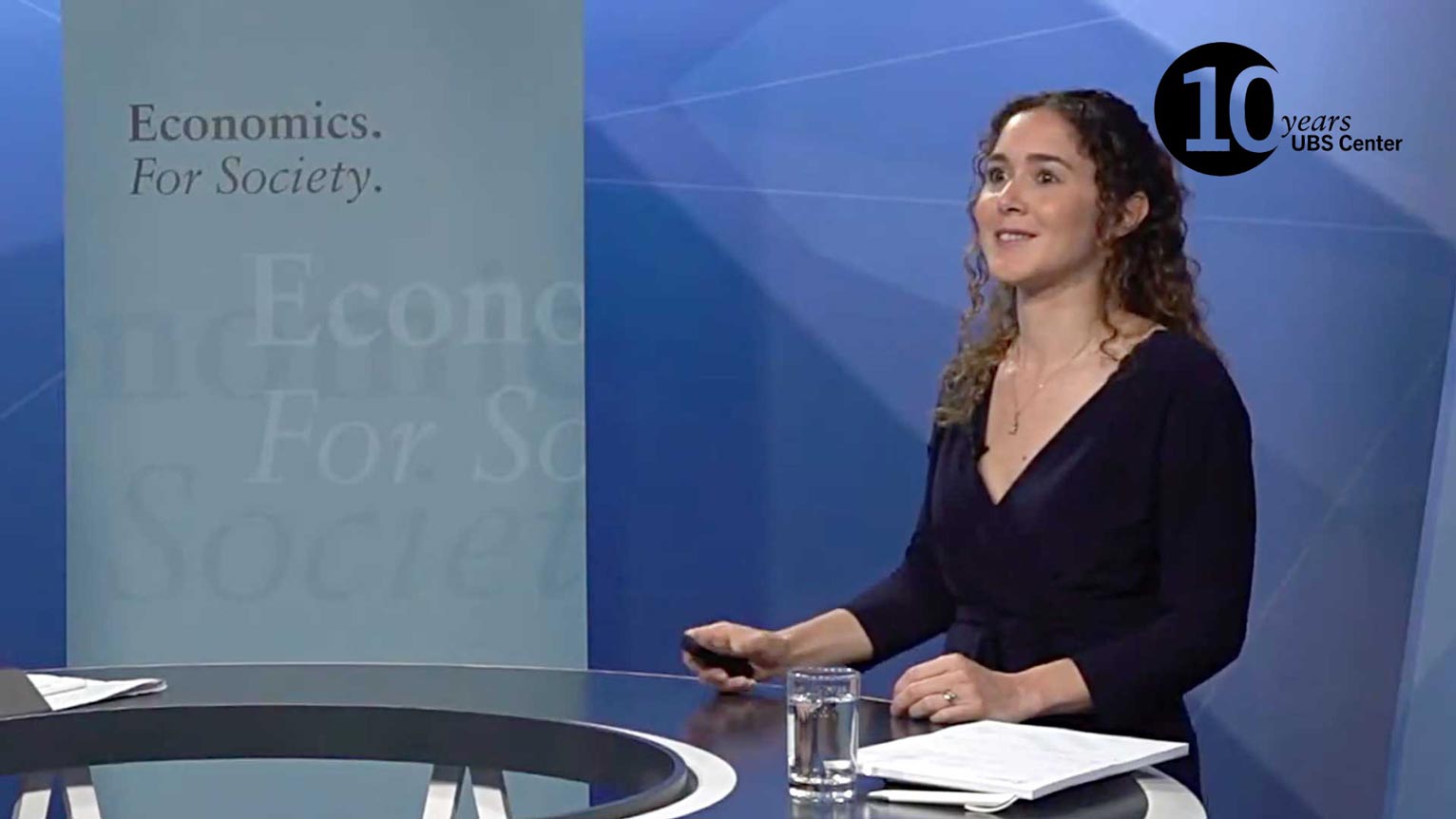
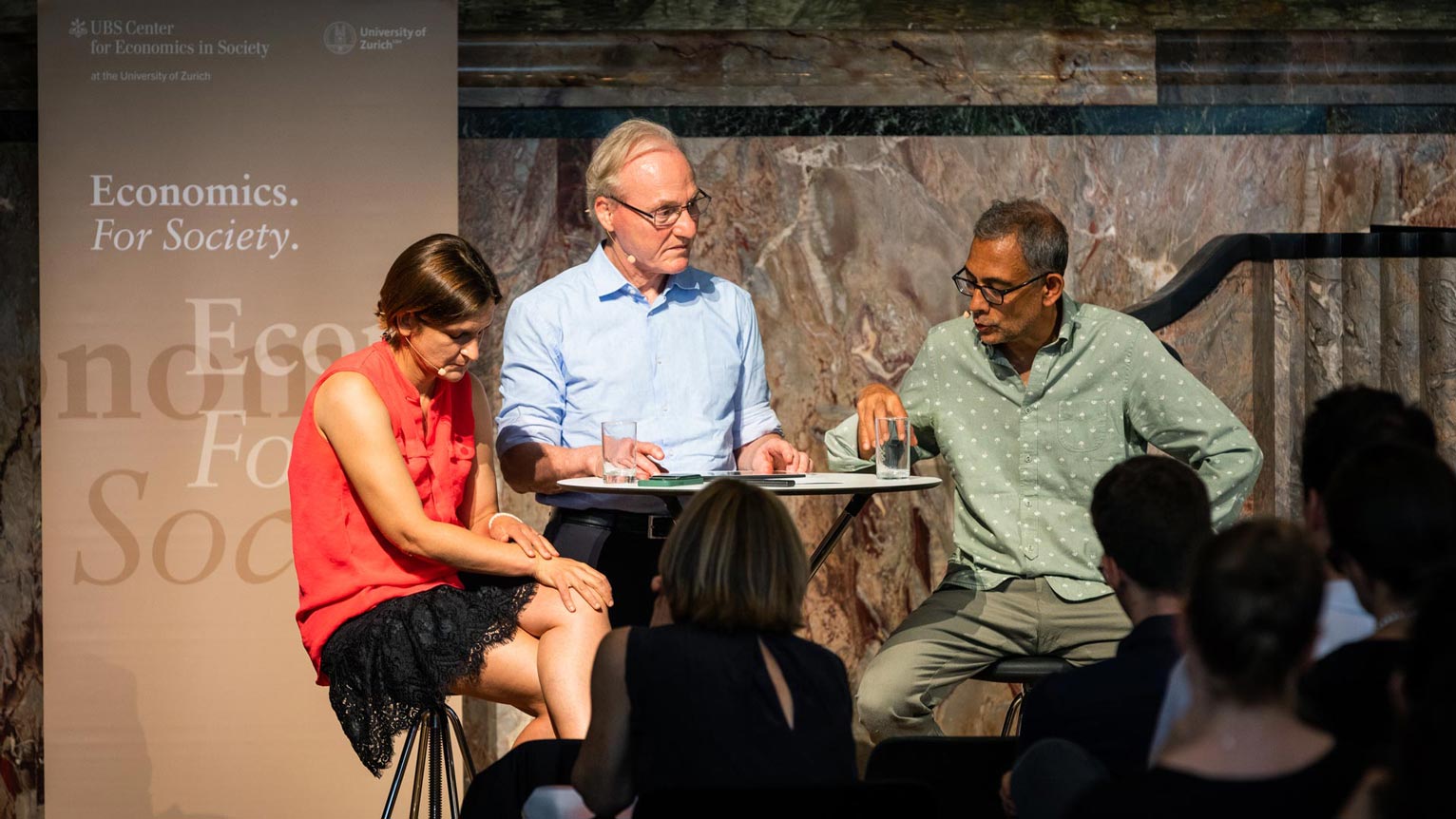
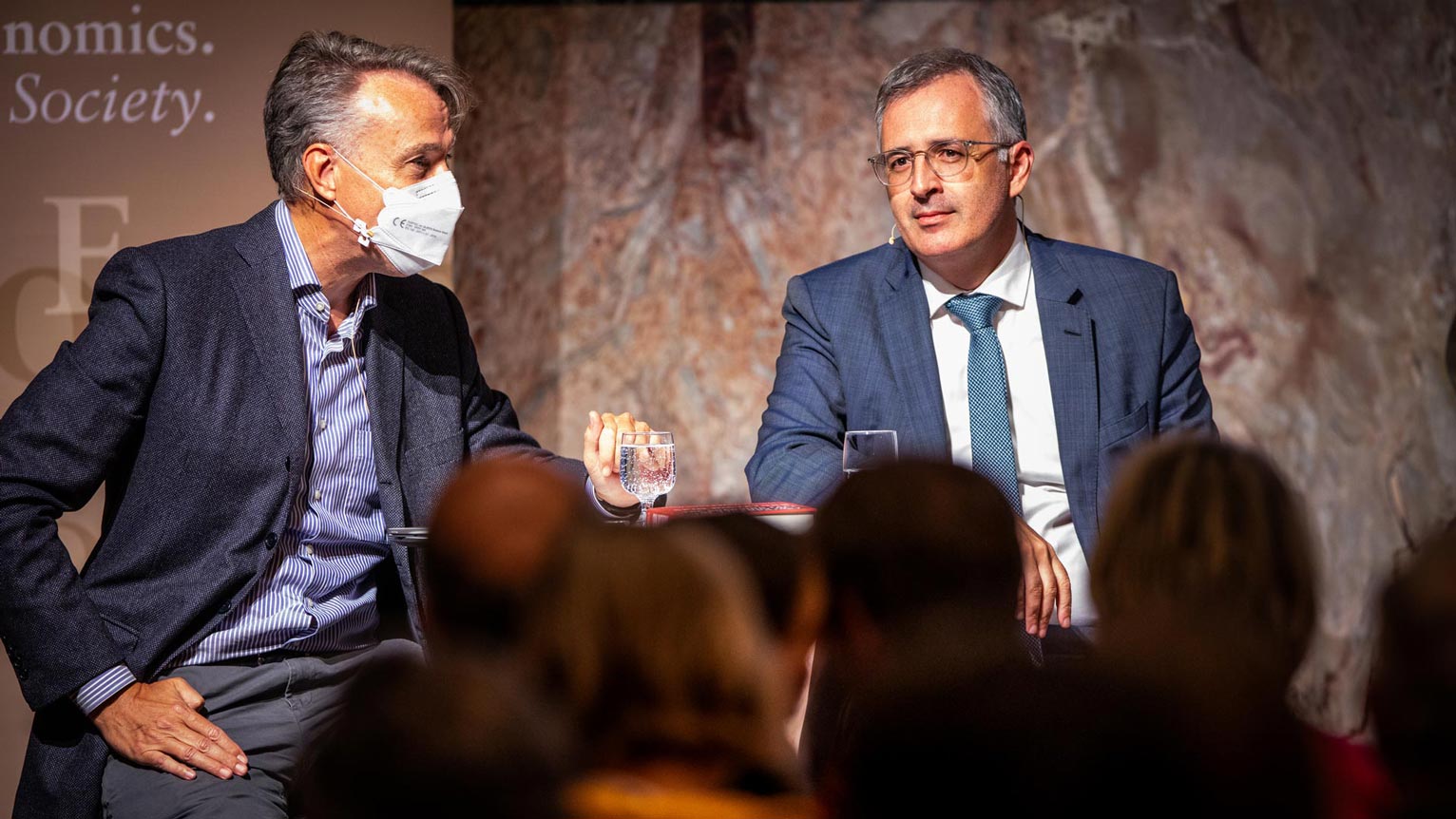
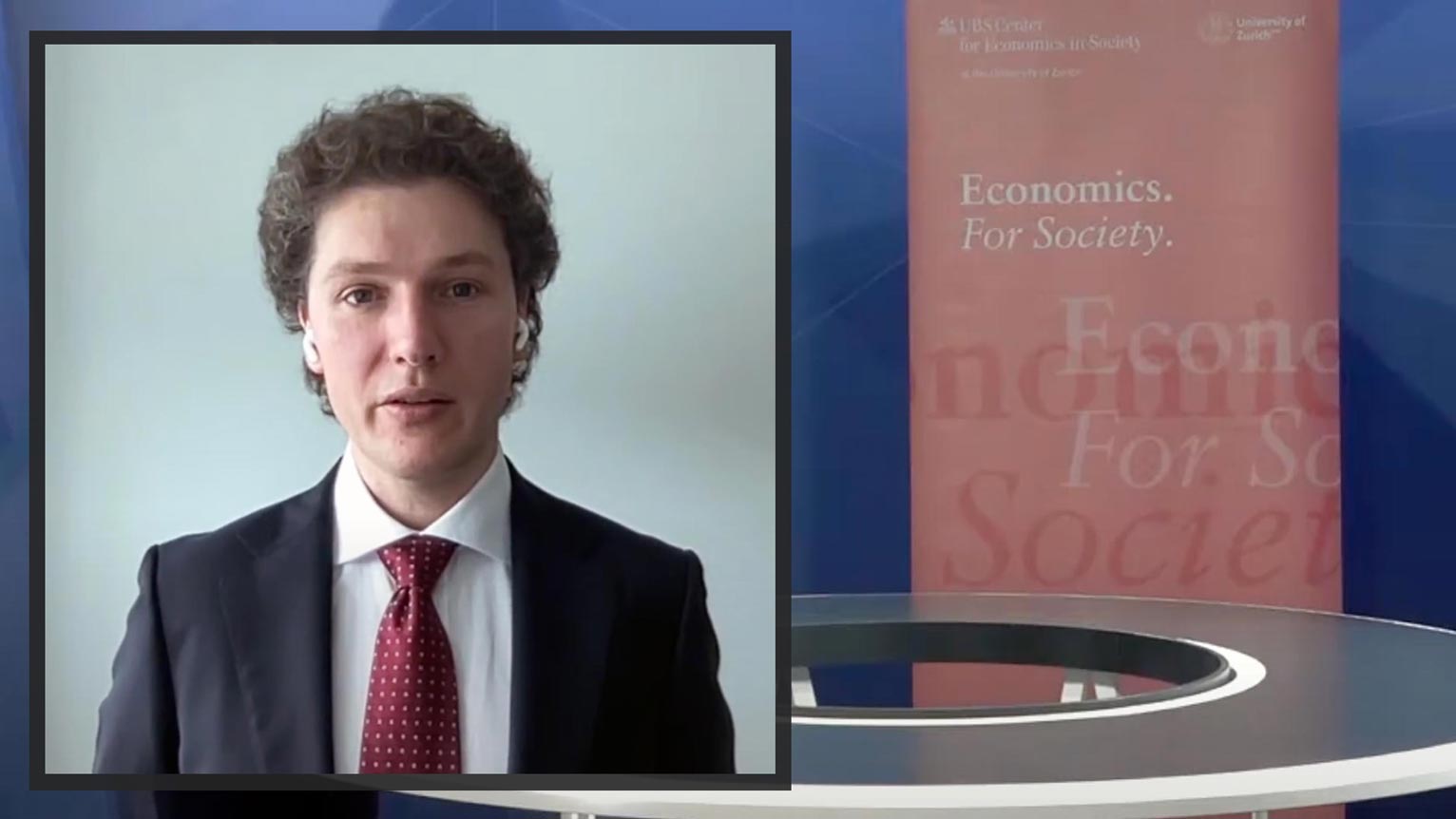
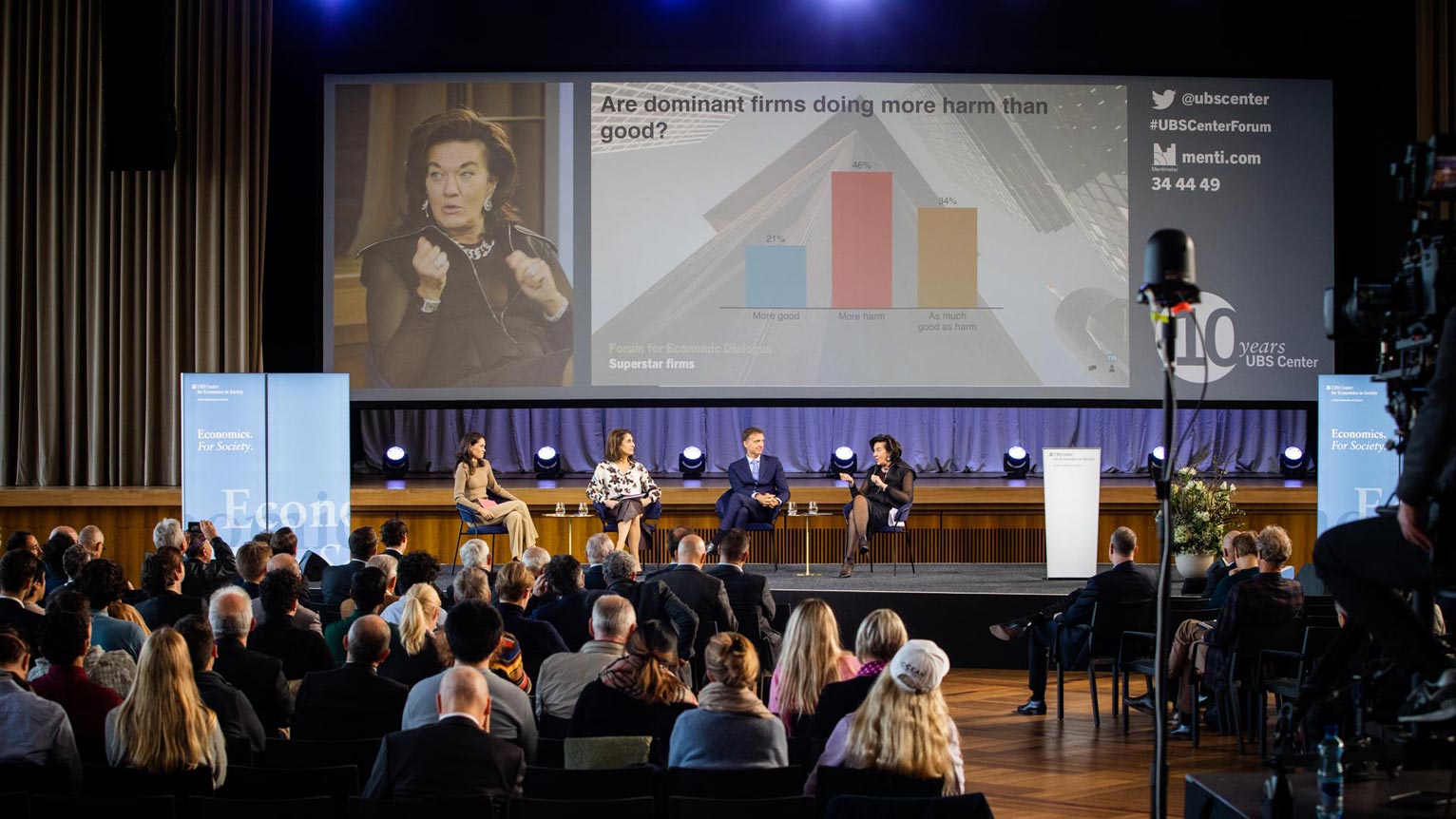
Center publications
The UBS Center offers two publication series. The Public Paper series makes research on topics of key social relevance available to a broader audience in a simplified, compact, and highly readable format. The Policy Brief series can give governments and businesses the rigorous and clear insights necessary for informed debates and decisions. They are a condensed and non-technical version of some of our top research papers.
Politics and science – manifold dependencies (Public Paper)
We present a special issue of our Public Paper series on the occasion of our ten-year anniversary. For once, the paper does not focus on scientific experiments and theories, but on the relationship between two essential systems for a functioning modern society: science and politics. Kaspar Villiger accurately describes and analyzes the complex relationship between science and politics – illustrated and underpinned by his immense wealth of experience as a politician and entrepreneur.
Download here
Dominant firms in the digital age (Public Paper)
Dominant firms face limited competition in their market and exert monopoly power. Why has this happened, and why did it start in 1980? The rise of dominant firms has a direct impact on customers who pay higher prices, but it also has far-reaching implications for the macroeconomy. In this Public Paper, Jan Eeckhout reviews the determinants of the rise of dominant firms, discusses the causes and consequences, and proposes directions for policy solutions.
Download here
The UBS Center offers two publication series. The Public Paper series makes research on topics of key social relevance available to a broader audience in a simplified, compact, and highly readable format. The Policy Brief series can give governments and businesses the rigorous and clear insights necessary for informed debates and decisions. They are a condensed and non-technical version of some of our top research papers.
Politics and science – manifold dependencies (Public Paper)
We present a special issue of our Public Paper series on the occasion of our ten-year anniversary. For once, the paper does not focus on scientific experiments and theories, but on the relationship between two essential systems for a functioning modern society: science and politics. Kaspar Villiger accurately describes and analyzes the complex relationship between science and politics – illustrated and underpinned by his immense wealth of experience as a politician and entrepreneur.
Download here
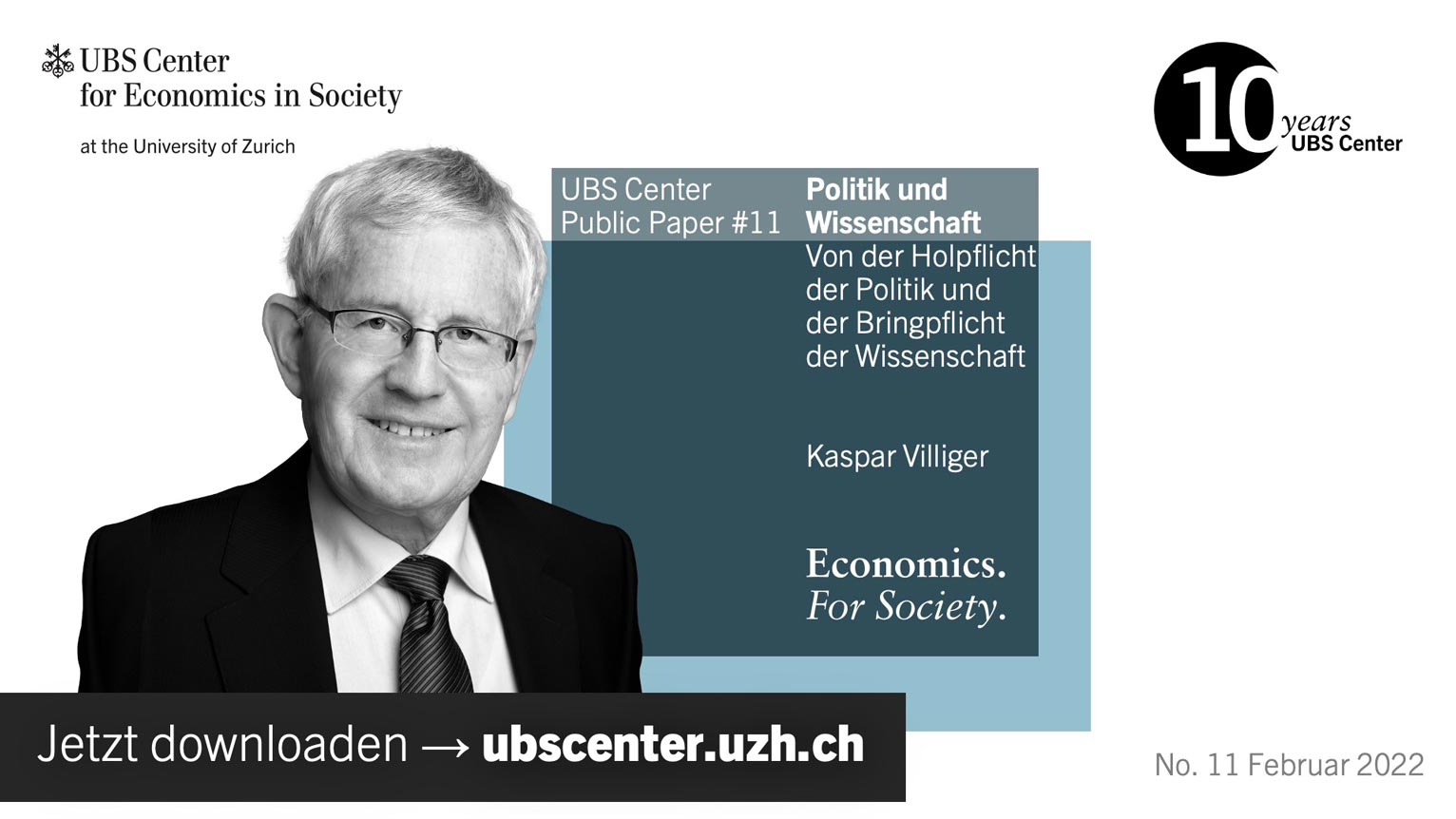
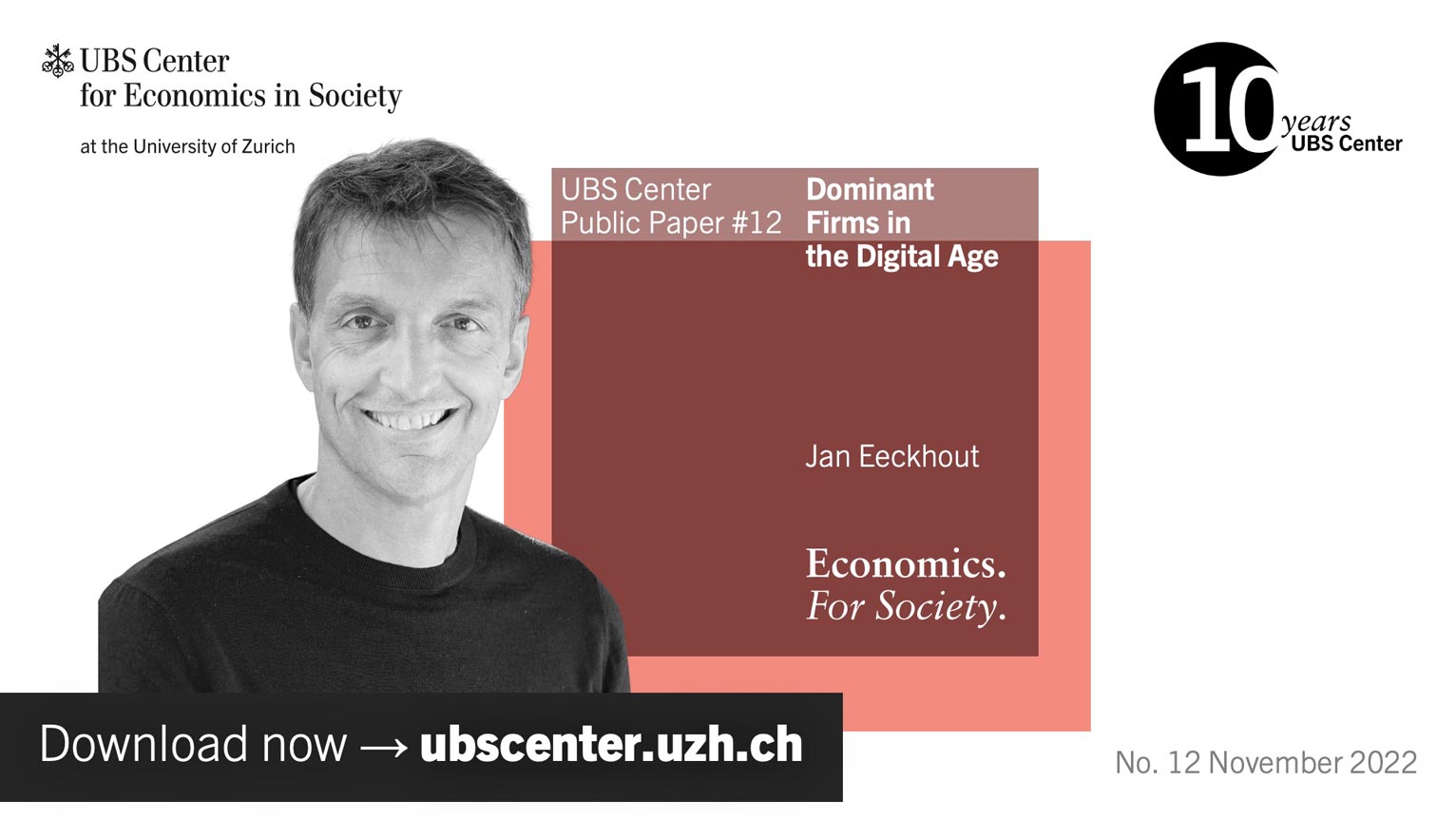
Selected publications
Adão, Carrillo, Costinot, Donaldson, and Pomeranz. 2022. “Imports, Exports, and Earnings Inequality: Measures of Exposure and Estimates of Incidence.” Quarterly Journal of Economics.
Ager, Bursztyn, Leucht, and Voth. 2022. “Killer Incentives: Rivalry, Performance and Risk-Taking among German Fighter Pilots, 1939 – 45.” Review of Economic Studies 89(5).
Ambuehl, Bernheim, and Lusardi. 2022. “Evaluating deliberative competence: A simple method with an application to financial choice.” American Economic Review.
Bursztyn, Rao, Roth, and Yanagizawa-Drott. 2022. “Opinions as Facts.” Review of Economic Studies. Forthcoming.
Caprettini and Voth. 2023. “New Deal, New Patriots: How 1930s Government Spending Boosted Patriotism during WW II.” Quarterly Journal of Economics. Forthcoming.
Schunk, Berger, Hermes, Winkel, and Fehr. 2022. “Teaching Self-Regulation.” Nature Human Behaviour.
10 years anniversary of creating dialogue
The UBS Center can look back on 10 successful years of research promotion and scientific dialogue. After all, the Center’s primary task is to support the Department of Economics at the University of Zurich. Through this partnership, the Department has been able to grow considerably over the past 10 years and strengthen its position in the international competition among universities. This progress has not gone unnoticed, and the department has been recognized by internationally renowned researchers, who have encouraged it to continue on its path to the top of the world.
Six clusters on key economic topics
On the occasion of our 10th anniversary, we invite you to browse through the Center’s highlights from the past decade. What are the social and economic origins of populism? How can we reduce inequality? Is culture key? How can we keep Swiss finance in the game? Can Europe be saved? Answers to these and other important questions are provided by numerous experts in lectures, interviews, and papers made possible by the UBS Center. On our website, we have grouped the diverse topics and issues into six clusters that best reflect the Center’s focus.
The UBS Center can look back on 10 successful years of research promotion and scientific dialogue. After all, the Center’s primary task is to support the Department of Economics at the University of Zurich. Through this partnership, the Department has been able to grow considerably over the past 10 years and strengthen its position in the international competition among universities. This progress has not gone unnoticed, and the department has been recognized by internationally renowned researchers, who have encouraged it to continue on its path to the top of the world.
Six clusters on key economic topics
On the occasion of our 10th anniversary, we invite you to browse through the Center’s highlights from the past decade. What are the social and economic origins of populism? How can we reduce inequality? Is culture key? How can we keep Swiss finance in the game? Can Europe be saved? Answers to these and other important questions are provided by numerous experts in lectures, interviews, and papers made possible by the UBS Center. On our website, we have grouped the diverse topics and issues into six clusters that best reflect the Center’s focus.
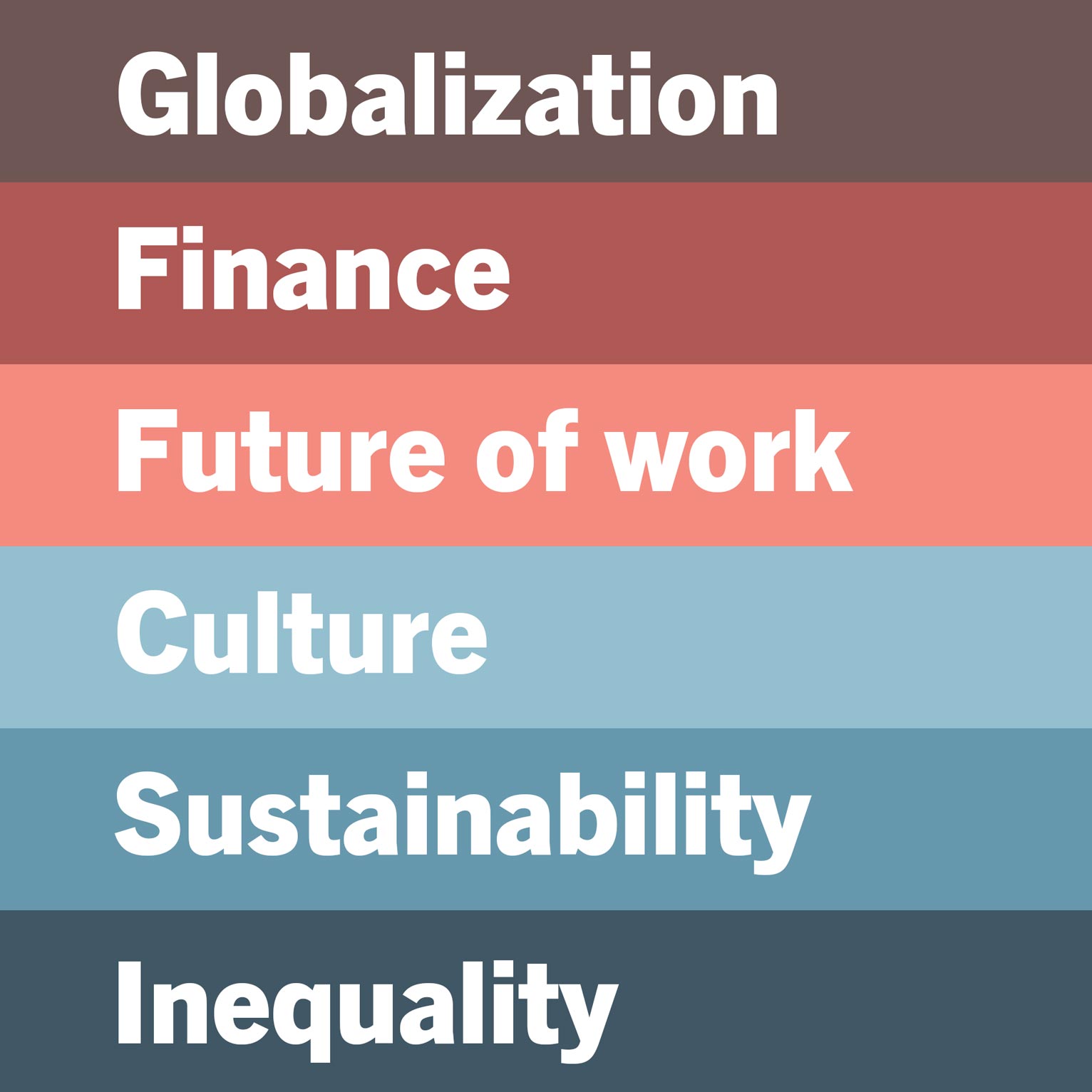
Events 2023
Federalism (Wirtschaftspodium Schweiz, 3.4.2023)
Next year’s Podium will focus on a particular Swiss feature: federalism. We are pleased to announce Ueli Maurer, Federal Councillor from 2009 to 2022, as well as Prof. Lars Feld, Director of the Walter Eucken Institut, as our keynote speakers for the event. More speakers will be announced in due course.
Stay updated
Democracies (Forum for Economic Dialogue, 13.11.2023)
Our next UBS Center Forum at the Kongresshaus Zürich will focus on democratization. Speakers will be announced in due course.
Stay updated
Federalism (Wirtschaftspodium Schweiz, 3.4.2023)
Next year’s Podium will focus on a particular Swiss feature: federalism. We are pleased to announce Ueli Maurer, Federal Councillor from 2009 to 2022, as well as Prof. Lars Feld, Director of the Walter Eucken Institut, as our keynote speakers for the event. More speakers will be announced in due course.
Stay updated
Democracies (Forum for Economic Dialogue, 13.11.2023)
Our next UBS Center Forum at the Kongresshaus Zürich will focus on democratization. Speakers will be announced in due course.
Stay updated
